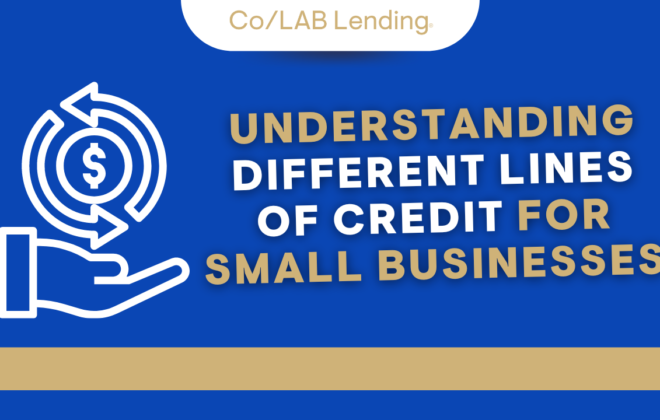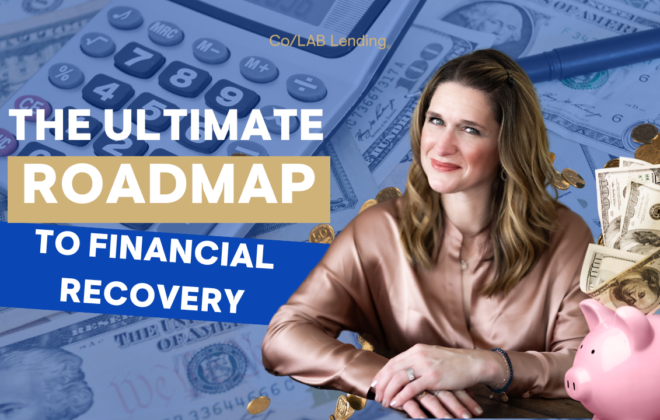9 Frequently Asked Questions About Mortgages By Home Buyers
Securing a Mortgage: Your Top Questions Answered
(Answers included free of charge.)
So, you want to buy a house, but not sure where to start. Should you hire a real estate agent or do you start house hunting? Which is it? Well, the answer is actually neither of these. Always start with how you are going to buy the house – the financing.
Securing a mortgage is easily the most important aspect of buying a home. If you don’t know what a mortgage is here is a simple definition: A mortgage is a loan from a lender that gives the buyer the purchasing power to buy a home. Simple.
Understanding the ins and outs of a mortgage is important because most home buyers will need one. Unless you are lucky enough to buy a home with cash out of your pocket, you will need to work with a licensed mortgage professional to help you secure financing.
If you don’t already know, there are many different loan types and products available to you. All of them offer different features like the length of the loan, interest rates, required down payments, mortgage insurance, and available lender credits just to name a few. Additionally, loan types have their own set of restrictions for qualification like maximum household income or minimum credit scores.
You are going to need some guidance to help navigate the sea of loan products. This is why we recommend speaking to a mortgage broker who can help you narrow down your choices to the options that best fit your unique situation.
Along the way, you are going to have questions. DO NOT be afraid to ask them. We can’t stress this enough. When it comes to mortgages there is no such thing as a dumb question.
Here are some of the most frequently asked questions regarding mortgages we get asked all the time. Chances are you will have these same questions, maybe more, and that’s ok.
1. Understanding the Mortgage Process: A Starter Guide
First, know all your options. You are going to want to find an experienced mortgage pro who has already helped hundreds or even thousands of people get into new homes.
Internet searches for reviews of local mortgage companies in your area is a great place to start. The internet has changed the way consumers shop and that includes how they are shopping for home loans. Do a search for your local mortgage companies and create a list of the companies you find. Next, do a second search for each individual mortgage company you found. Google makes it easy, you will be able to find that company’s star rating and also comments left by previous customers. Typically, good businesses will have high star ratings and plenty positive of comments.
Second, don’t forget to talk to your friends, family and even co-workers. Chances are a few of them have had experiences with some of these companies and can provide some first-hand insight.
Third, ask a realtor. Locate a top producing realtor in your area. There is a very good chance they know what mortgage companies do the best job and have connections to them. Ask them for a recommendation.
2. Required Documentation for Getting a Mortgage
The answer to this question is not straightforward. To get your loan process started the documentation for most will be the same. However, once the loan application is under lender review other forms of documentation may be required.
This all depends on the lender’s loan guidelines and also on your unique personal and financial situation.
Some of the most frequently requested documents that are needed to get started are:
- Driver license
- Fully executed sales contract
- Bank and asset statements
- Copy of earnest money deposit check
- Current pay stubs
Download our Required Documents For Mortgage Application Checklist to get an entire list of documents you may potentially need.
3. The Importance of Pre-Approval in Home Buying
Before you go house hunting you should get pre-approved. A pre-approval, simply put, is a letter from a mortgage professional stating you will get approved by a lender based on the information you provided.
This is why pre-approval is important…
Getting pre-approved can make the difference between a seller accepting your offer or not accepting it. In most cases, a seller’s real estate agent will insist a buyer is pre-approved before they send over any offer.
Having a pre-approval can be helpful in negotiations, especially if there is competition. As a buyer, you will be comfortable knowing your financial limits and the seller will have peace of mind knowing if they accept your offer, the mortgage will be approved.
4. Choosing the Right Loan Product for Your Situation
Your financial situation, personal situation, and overall goals will help determine what loan is best for you. There are a number of different products out there, some will be a good fit and others won’t. An experienced mortgage professional can easily sort these out for you, explain the differences, and make a recommendation based on all the information you provide.
Some of the most common loan products include:
Conventional Loans
Typically, buyers that qualify for conventional loans will have strong credit, good cash reserves and can put down more money on the house. However, there are conventional loan programs that require as little as 1% down, if you qualify.
FHA Loans
FHA loans are fully insured by the Federal Housing Administration and designed to provide buyers with smaller down payments and less than perfect credit an opportunity to own a home.
USDA Loans
USDA loans are mortgages backed by the U.S. Department of Agriculture as part of its Rural Development Guaranteed Housing Loan program. USDA loans are a great option for borrowers who may have slightly less than perfect credit and don’t have a lot of money to put down.
If the home is eligible and the buyer meets all the qualifications the home can be 100% financed.
VA Loans
The VA Loan is available to United States Veterans, Service Members, and eligible spouses of veterans. VA home loans are available through private lenders such as banks and mortgage brokers.
Because the U.S.Department of Veterans Affairs guarantees a portion of the loan, eligible Veterans, or their spouses, can benefit from the lender with more favorable terms including 100% financing and full seller concessions. (This means the seller can pay all of your closing costs!)
5. Special Loans for First-Time Home Buyers
Yes! This question is asked a lot. There are loans that are better suited for first-time home buyers than others. Often FHA and USDA are considered good options for first-time buyers because the guidelines for approval are less restrictive and the down payments are lower than that of a conventional. If you choose USDA and find an eligible property, you might not have a down payment. For those with strong credit, and meet income guidelines, there is a 1% conventional option that may be considered.
You should also be aware that if a down payment is a barrier between you and a new home there are still options. (You may still be able to get that house!) Check with your local county and state for programs that offer new home buyers down payment assistance. Many states offer numerous plans including grants and incentive programs.
6. Understanding Interest Rates: Will Yours Change?
Most new buyers will choose a loan product that has a fixed interest rate. This means that the interest rate is set for the life of the loan and will not change.
Another type of loan called an ARM (Adjustable Rate Mortgage) has a set fixed rate for a certain amount of time. When that time is up the interest rate will change.
If you are a new home buyer you will most likely be choosing between products that are fixed and will not need to worry about your rates changing.
7. Estimating Your Budget: How Much Do You Need to Buy a House?
There is no real answer to this question, but most often new buyers think they will need a cargo plane full of cash. This is not necessarily true, but, it depends.
You will need to be aware of various costs involved with buying a home. You will need to consider the down payment, appraisal costs, home inspection costs, and don’t forget attorney fees, to name a few.
All of these costs can add up. If you need help covering some of these expenses you might be able to get sellers assistance or even lender credits to help offset them. Speaking with a licensed mortgage pro can help put these costs in perspective and give you a better understanding of the total amount of money you will need to buy a home.
Reputable mortgage companies often offer free consultations. They will sit down with you, answer your questions, and go over a number of ways you can finance your home. It’s a free service you should take advantage of!
8. The Role of Appraisal in Home Buying
A bank ordered home appraisal is an unbiased estimate of the true (or fair market) value of what a home is worth.
Lenders will order an appraisal during the mortgage loan process so there is an objective way to assess the home’s market value.
This helps make sure that the amount of money being loaned to the buyer is the appropriate amount.
9. The Mortgage Timeline: How Long Does It Take?
The loan approval process can vary from lender to lender but in most cases, the length of time is determined by the loan type. Some lenders take 30 days, some 45, and some 60 or more (Yikes!). It all depends on the lender and the experience of the loan professional you are working with.
Experienced mortgage companies will almost always close loans between 30-45 days. But, even the most experienced mortgage lender can get delayed if the borrower does not provide required documents in a timely manner. That was our not-so-subtle hint to you. Be sure to always stay on top of any requests made by the lender.
It is important for you, as the borrower, to listen to your loan officer and provide them with all necessary information as they request it. Doing this helps to ensure the loan process goes smoothly and as quickly as possible.
One Last Thought
Now that we may have answered some of your questions, you probably have a ton more. Again, that’s ok. We want your home buying experience to be a good one and that is why we are always available to answer mortgage questions. We will even sit down with you (Pssst…it’s free.) and walk you through your options.
The path to home ownership can be long but it doesn’t have to be hard. Get started on the easier path to your new home right here, right now, with us. Go ahead, ask us your questions.
Still have questions or just want to learn more about buying a home? Download our eBook: The Home Buyer’s Guide To Getting a Home Loan. The Simple Guide To Home Financing.
Mortgage Consultation Today!
Categories
- Credit (4)
- FHA Loans (3)
- Finances (3)
- First Time Home Buyers (6)
- Grab Bag (7)
- Home Technology (1)
- Homebuying Tips (17)
- Inspiration (1)
- Insurance (3)
- Interest Rates (3)
- Loan Process (1)
- Mortgage Financing (14)
- Motivation (1)
- News (1)
- Press Release (8)
- Renovation (2)
- Self Employed (1)
- Tips & tricks (1)
- Uncategorized (134)
- USDA Loans (1)
- VA Loans (2)




